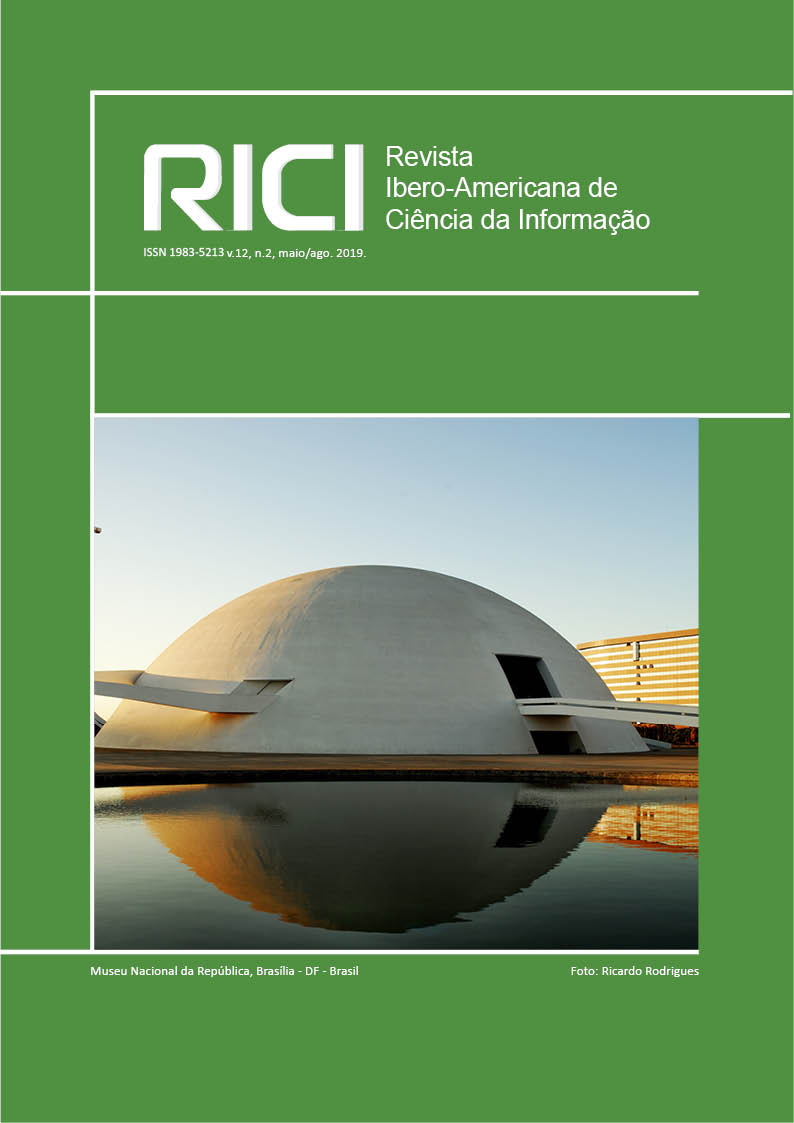Metric analysis of literature published on Vallenata music
DOI:
https://doi.org/10.26512/rici.v12.n2.2019.22048Keywords:
Vallenata music. Scientometry. Bibliometrics. Informetrics.Abstract
Analyze the published literature on vallenata music. For this purpose, the literature published in the form of academic articles, articles of diffusion, journalistic articles, books, book chapters and presentations was identified, by means of the keywords "Music Vallenata"; "Vallenato Music"; "Vallenato and Music and Colombia"; "Music and Vallenato and Colombia" in catalogs of Colombian libraries, databases and Google Scholar. The results that were obtained were exported to a bibliographic database in EndNote X5. The data were analyzed with SPSS statistical software to identify trends in publication, journals and more productive authors, growth and collaboration. We found 276 papers published from 1962 to December 2015 by 209 authors, of which academic articles (54%) have been published in 108 periodicals, books (24%) and chapters of books (5%) Were published mostly in Spanish (97%). Most of the published documents are in single authorship, only 9% of the papers were published in collaboration. This literature grew at a rate of 8.9% per year and doubles approximately every 19 years.
Downloads
Downloads
Published
How to Cite
Issue
Section
License
Copyright Notice
Authors who publish in this journal agree to the following terms:
- Authors retain copyright and grant the journal right of first publication with the work simultaneously licensed under the Creative Commons Attribution License 4.0, allowing the sharing of work and recognition of the work of authorship and initial publication in this journal.
- Authors are able to take on additional contracts separately, non-exclusive distribution of the version of the paper published in this journal (ex.: distribute to an institutional repository or publish as a book), with an acknowledgment of its initial publication in this journal.
- Authors are permitted and encouraged to distribute their work online (eg.: in institutional repositories or on their website) at any point before or during the editorial process, as it can lead to productive exchanges, as well as increase the impact and citation the published work.
















